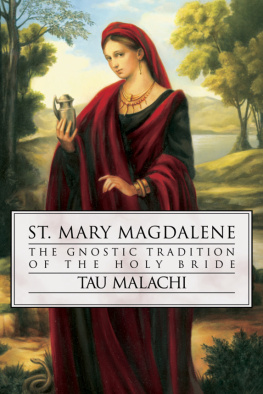Table of Contents
Copyright 2021
Kakadu, LLC
Published by W ELLSPRING
Copyright 1863 by Robson, Levey,
and Franklyn, London, UK.
This book was originally published in 1863,
All rights reserved.
No part of this book may be used or reproduced in any manner whatsoever without permission except in the case of brief quotations in critical articles or reviews.
Design by Ashley Dias
ISBN: 978-1-63582-240-3 (softcover)
ISBN: 978-1-63582-241-0 (e-Book)
10987654321
Printed in the United States of America
T ABLE of C ONTENTS
F OREWORD
By Matthew Kelly
A Unique Perspective
Mary is the most famous woman in history. She has inspired more art and music than any other woman, and even in the modern age, she fascinates the imaginations of men and women of all faiths. In our own age, Mary has appeared on the cover of Time magazine more often than any other person.
I suspect that if we are to reconcile the great disharmony that exists between the role of men and the role of women in modern society, we will need the insight and wisdom of this great feminine role model. Is it possible for us to understand the dignity, value, mystery, and wonder of women without first understanding this woman?
At the same time, despite her fame and peoples fascination with her, Mary has largely been rejected as a role model for women in the modern age. In fact, she has been rejected on an industrial scale as a model for anything. What does that say about our times? Are we confused? Do we value different things than other people in other times? Do we value the wrong things? And if so, what are we willing to do about it?
Beyond her fame and personal attributes, Marys historical importance and significance as a feminine role model is her centrality to Christian life. The first Christians gathered around her for comfort and guidance, yet many modern Catholics treat her as though she has some contagious disease. And of course, our non-Catholic Christian brothers and sisters generally minimize Marys role and importance. One of the great challenges we face as modern Catholics is to find a genuine place for her in our spirituality.
When my wife gave birth to our first child, Walter, it transformed my spirituality in unexpected ways. Being a father for the first time filled me with so many new spiritual insights. Today I am blessed with five wonderful children, each unique and special in his or her own way. I love my children so much, and if I can love them so much, with all my brokenness and all my limitations, how much more God must love me? Through my children I have experienced the love of God in a whole new way.
I yearn to be with my children. When I am on the road, or even at the office for the day, I long to get home and hold them, play with them, be with them. It strikes me that perhaps above everything else, God just yearns to be with us.
The birth of my children has renewed and heightened my relationship with Mary. It has occurred to me many times that no matter how much I love my children, my wife will always have a unique perspective on their lives. It doesnt mean that she loves them more, or that I love them less. It just means that a mother sees her childs life in a way that nobody else can. If I dont take time occasionally to ask her about this motherly perspective, I unnecessarily miss a part of my childrens lives.
A mother has a unique perspective. Nobody sees the life of a child the way that childs mother doesnot even the father. This is Marys perspective of Jesus life. She has a unique perspective. It seems to me that every genuine Christian, not just Catholics, should be interested in that perspectiveand not just interested, but fascinated. In the Rosary we ponder the life of Jesus through the eyes of his mother. This is an incredibly powerful experience if we enter into it fully.
Do Catholics worship Mary?
It is fascinating to me that Mary, who was so instrumental in the life of Jesus, is so easily set aside and forgotten by so many Christians. Many more are clearly uncomfortable with any type of Marian spirituality. For hundreds of years this discomfort was relegated to non-Catholic Christians, but with every passing decade for about the past fifty years, more and more Catholics have become uncomfortable with Marian spirituality and comfortable ignoring Marys role in our lives and the life of the Church.
This is in large part the result of the relentless questioning of Marys place in Christian spirituality by non-Catholic Christians. The question they have been posing over and over for five hundred years is: Why do Catholics worship Mary?
Why havent we answered this question once and for all for the whole world? Its astounding when you step back and think about the damage this one question has done to the faith of millions of Catholics and to the Church as a whole. The answer is that we have become hypnotized by complexity. The Catholic faith is so rich and deep and broad that the average Catholic struggles to know what matters most or even where to start. People need simple starting points.
Why do Catholics worship Mary? Even the way the question is formulated assumes that what they are questioning is an accepted fact. It is not a question seeking truth or understanding; it is a question that seeks to trap. The question starts out with the assumption that Catholics worship Mary. It doesnt start out with truth-seeking curiosity, asking, Do Catholics worship Mary?
Anytime you are being attacked with questions, the first rule is always: Dont accept the premise of the question.
This constant questioning for five hundred years, which began with the Protestant Reformation and has been carried on by modern evangelical Christianity, has played a role in slowly but surely eroding the faith of Catholics.
We are now at the point where most modern Catholics dont have a dynamic relationship with Mary, are generally uncomfortable or suspicious of the role she plays in Catholic liturgy and spirituality, and look down on the Rosary as something from another place and time that has no relevance in their complex modern lives.
For hundreds of years, our non-Catholic Christian brothers and sisters have been accusing us of worshipping Mary (and the saints), and I dont think we have done a good job of settling this question. It is fascinating, disturbing, and tragic that we have failed to articulate and widely circulate a short, compelling answer to the question. This single failure has altered the history of modern Catholicism, by sowing faith-eroding doubts. We should have equipped every Catholic on the planet with an answer to the question: Do Catholics worship Mary?
No. We pray to Mary, but not in the same way we pray to Godand not to worship her as a deity.
Think of it in this way: If you got sick and asked me to pray for you, I would. This does not make me uniquely Catholic, or even uniquely Christian. There are many non-Christians who believe in the power of prayer. If I ask my non-Catholic Christian friends whether they pray for their spouses or their children, they will all say yes. If I ask them to pray for me, they will say yes.
Our relationship with Mary operates under this same principle. We believe that Mary and the saints are dead to this world, but we also believe they live on with God for eternity in the next world. And we believe that their prayers are just as powerful now that they are in heaveneven more powerfulthan they were when they were here on earth. We are essentially saying to them, We have problems down here. You know what it is like, because you have been here. Please, pray for us!

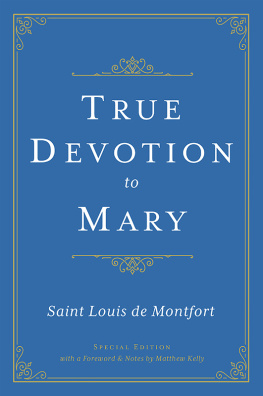
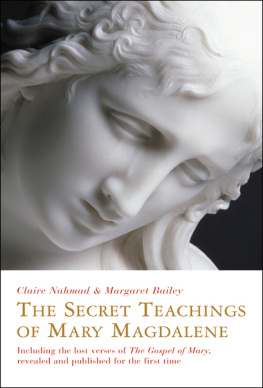

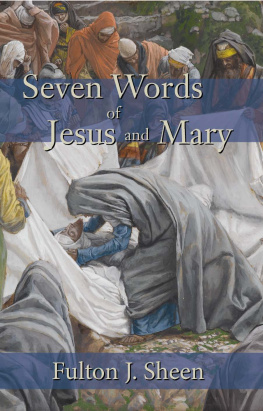
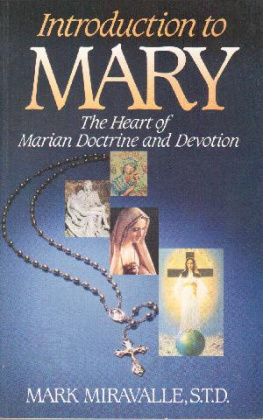
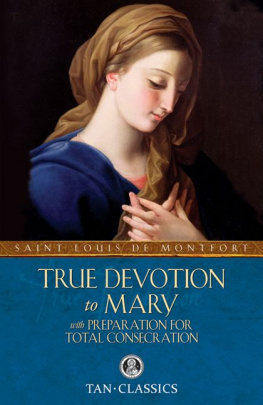
![Louis de Montfort - The Saint Louis de Montfort Collection [7 Books]](/uploads/posts/book/265822/thumbs/louis-de-montfort-the-saint-louis-de-montfort.jpg)
